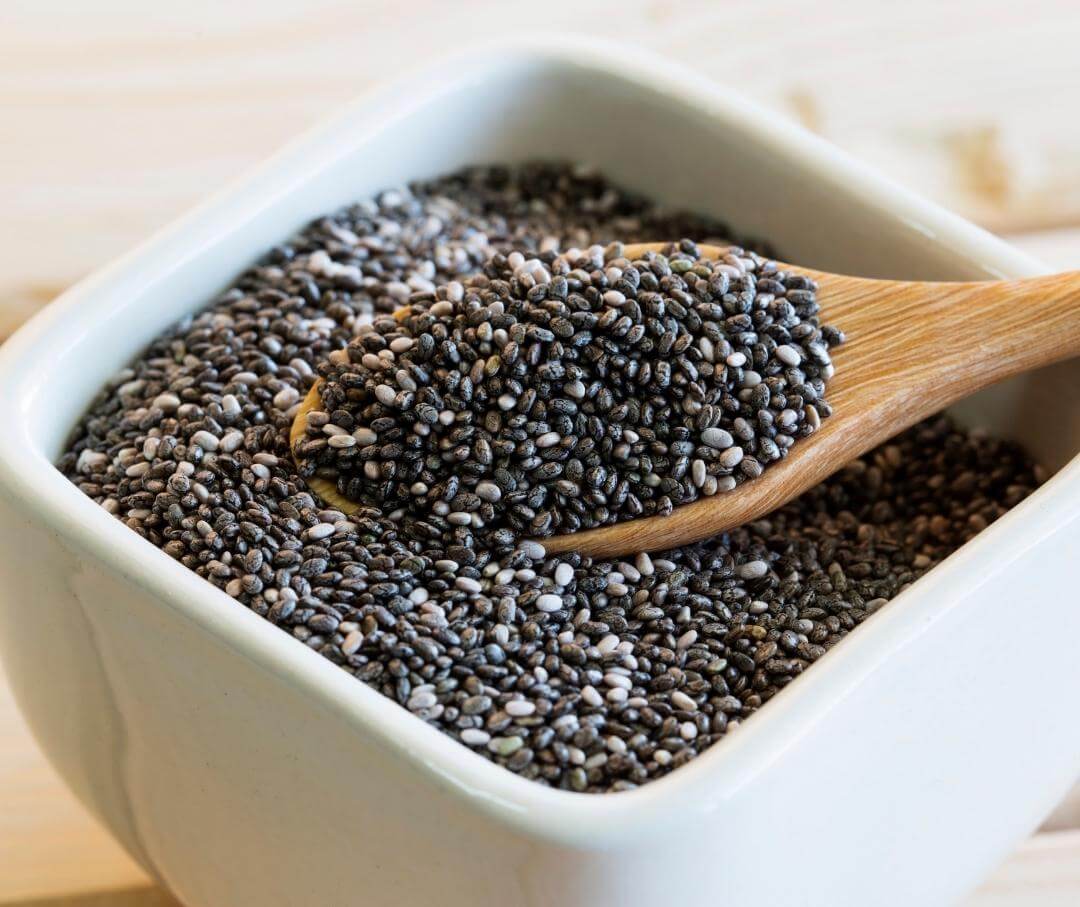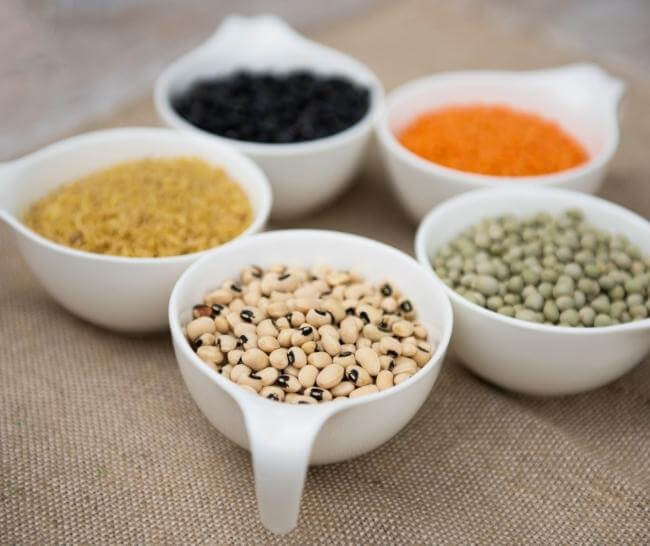It seems a new diet fad always comes along, promising weight loss and improved health. One that is gaining some traction is geared toward increasing your metabolism through the food you eat and is called a “metabolic diet,” often referred to as a “pro-metabolic diet.” The most common types of pro-metabolic diets are the Ketogenic (keto) diet and the Atkins Diet.
Our body uses food differently, and some foods and eating patterns can speed up the metabolism while others slow it down. This diet focuses on eating healthy foods, including lean meats, fruits and vegetables, and whole grains. It discourages eating foods high in saturated fat and sugar, which proponents feel are heavily “processed.” It also encourages eating frequent small meals over two to three large meals daily.
Rather than a strict diet that focuses on calorie counting or restricting foods, it is more of a wellness lifestyle and something that can easily be incorporated into most people’s daily life. The question, however, is whether what we eat really affects our metabolism.
What is a Metabolic Diet?
Have you ever wondered if what you eat and how you eat could speed up your metabolism? Are foods speeding up your metabolism or making it work more efficiently?
The idea behind a metabolic diet is that eating certain foods speeds up your metabolism and causes you to burn more calories and lose weight faster. Does it work? Well, maybe. So, let’s look at what people say about the metabolic diet and its pros and cons.
{{mid-cta}}
What is Metabolism?
Metabolism is simply the process of your body converting the food you eat into energy and can impact your entire body on a cellular level, including your hormones, immune system, sex hormones, reproductive system, thyroid, detoxification, digestion, adrenals, and more.
Food moves through our digestive system and is broken down into simpler forms. Proteins get broken down into amino acids that help build muscle, carbohydrates are broken down into sugar that is used for energy, and fats are broken down into fatty acids that help build tissues and hormones. Extra gets stored in our muscle and fat cells for use later. Vitamins and minerals get transported to the areas needed.1,2
Even when sleeping, our body needs energy to keep our heart beating, lungs breathing, and brain working. Every cell in our body needs some of this energy to function.
The amount of energy, or calories, we need to perform these essential functions varies for every person and is called our basal metabolic rate. It varies based on the following:
- Height and weight - Smaller people need fewer calories to perform these basic functions, while larger, heavier people burn more calories at rest.
- Muscle mass - Muscle burns more calories than fat stores do.
- Gender - like it or not, men typically have less body fat than women and burn more calories at rest.
- Age - As we age, we naturally lose some muscle mass, and our metabolism slows down.
- Daily activity - Certainly, exercise increases our metabolism, even while we rest, but just moving more throughout the day can also impact how many calories we burn at rest. Carrying laundry upstairs, standing and walking around your office while on a call, or even just fidgeting and moving around more will increase your metabolic rate slightly. Standing desk, here I come!
Does what we eat also impact our metabolic rate? We think of food the same way we think about high-octane gasoline. The better the quality, the more efficiently our body runs, and the better our metabolism. So let's take a look.
What is a Good (or a Poor) Metabolism?
So what is metabolic health and what does it mean to have a good, high, or healthy metabolism? People with a higher metabolic rate or metabolism burn calories faster and store less fat. They tend to be lean and often seem to have high energy levels.
People who have a slower metabolism may carry extra weight and feel sluggish.
Signs of Good Metabolism
When your body is healthy, everything just seems to work better. You tend to sleep better, have more energy, feel stronger, and are more likely to be in a good mood. All these mechanisms and processes play off each other and work together. They are all interrelated. Let’s take a look.
Good digestion
A healthy digestive tract efficiently breaks down the food you eat to use it for energy. As a result, it can absorb essential nutrients that help support your metabolism and store any extra calories for emergencies or times of stress.
Stable energy levels
One of the biggest benefits of a good metabolism is feeling energetic. When your body has an adequate energy supply and can use it efficiently, one key benefit is improved energy levels.
Good sleep
While we sleep, our body undergoes a vital period where our blood pressure and heart rate decrease and our brain rests. Cortisol, the stress hormone, decreases, and recent research suggests that some hormones, ghrelin, and leptin, that help control our appetite are increased. Interrupted or reduced sleep duration has been associated with higher blood glucose levels and reduced insulin sensitivity.3,4
Good mood
When you are well-rested and have a good energy level, your mood is also probably good. But it may also have something to do with some hormones regulating our appetite and metabolism. At least some early research on animals supports this theory. The hormones leptin and ghrelin, which regulate our appetite, may also affect our mood. These hormones work in some of the same areas of the brain that regulate our mood and reward signals. More research is needed in this area.5
Strong libido
A strong libido is another benefit of having a healthy metabolism. A study that evaluated healthy male athletes compared to over-exercisers and sedentary males found hormone levels associated with a strong libido, including testosterone, were more favorable in healthy athletes with a strong metabolism and lower body fat. Higher stress and cortisol levels were associated with lower libido, fatigue, and increased body fat.6
Strong immune system
Our immune system and metabolism are closely linked. When faced with a disease or infection, our immune system pulls from our reserve stores to help fight the invading bacteria or virus. With a healthy or strong metabolism, our body can better pull from those stores to help fight the infection.
Signs of Slow Metabolism
If those are all signs of a healthy or strong metabolism, the opposite would be true for a slower or sluggish metabolism.
Poor digestion
If you need help digesting food, you are likely not getting all the nutrients your body needs to function efficiently. A slow metabolism may also cause gas or bloating and hormonal imbalances.
Thyroid dysfunctions
Your thyroid gland secretes hormones that regulate your metabolism, especially your basal metabolic rate. It helps control carbohydrate and lipid (fat) metabolism, energy expenditure, and cholesterol metabolism and plays a role in insulin sensitivity.7
Cold hands & feet
One of the signs of hypothyroidism is an intolerance to cold, especially in the extremities like hands and feet. A slow or sluggish metabolism could indicate hypothyroidism and impaired metabolism.7
Low sex drive
Similar to having a strong or healthy libido when your metabolism is healthy, a low sex drive often accompanies slower metabolism. In the study with male athletes compared to sedentary males, testosterone levels were higher in healthy athletes than in sedentary males.6
Weak immune system
Metabolism and immunity are closely linked. As we learn more about our immune system, we’ve learned that our nutritional status strongly impacts the hormones that help regulate it. When we carry too much body fat, these hormones may increase inflammation and decrease the ability of our immune system to reduce inflammation and fight infection.8
Benefits of a Pro-Metabolic Diet
A pro-metabolic diet is a healthy way of eating that includes lots of fruit, vegetables, whole grains, and lean protein. It focuses on eating more foods that positively impact your metabolism.
While little research is available on this specific diet and how it impacts your metabolic rate, more of these healthy foods fall in line with other healthy eating plans like the Mediterranean and DASH diets and may have some health benefits.
May promote weight loss and weight management
Eating more nutrient-dense, whole foods such as fruits, vegetables, whole grains, lean protein, and less added sugar and fat can help manage weight. They tend to be high in fiber and protein that are satiating, which helps with maintaining a healthy weight.
Support chronic disease management
As with other healthy diets like the Mediterranean diet, this way of eating may reduce the risk of chronic diseases like diabetes and heart disease and reduce oxidative stress that can lead to chronic disease.9
Boosts energy and improves sleep
When you have a strong and healthy metabolism, your energy levels also tend to be high, and some research suggests sleep quality improves with more time being spent in restorative sleep.4

Improves digestion and promotes gut health
A pro-metabolic diet includes whole grains, fruits, and vegetables rich in fiber. These foods provide prebiotics that helps feed the healthy bacteria in the GI tract and improve digestion and gut health.
Best Pro-Metabolic Foods
There are a few versions of a metabolic diet, but most encourage healthy, nourishing foods that “are close to nature.” This follows somewhat along the lines of the Paleo diet, but this eating plan includes more whole grains and fruits. The goal of these goods is to satisfy the body’s needs by increasing energy, and decreasing cravings and hunger cues. Foods that tend to be encouraged on this diet include:
- Leafy greens
- Whole grains
- Root vegetables
- Fish
- Poultry
- Beef and liver from grass-fed cows
- Eggs
- Raw milk, cheese, and butter from grass-fed cows
- Oils (coconut oil, avocado oil, and olive oil)
- Bone broth
- Coffee
- Fruit
- Natural fruit juices (orange juice)
- Dark chocolate
- Natural sweeteners (honey and maple syrup)
Some limited foods include refined vegetable oils, refined grains, added sugars, and excessive nuts. The thought is that these foods are hard to digest or lead to increased fat stores, slowing your metabolism and leading to possible weight gain.
Pro-Metabolic Eating Basics: 5 Tips
If you are interested in a pro-metabolic eating plan, there are some tips proponents suggest along with eating the foods they recommend.
Eat within the first few hours of waking
Proponents of this eating plan recommend eating shortly after waking as they feel this gives your metabolism a jump start and helps process the energy from the food you eat better. This may be discouraging news for people who follow intermittent fasting guidelines, but the pro-metabolic diet can always be adjusted to meet your needs.
Eat every 2-3 hours
Rather than eating just three meals a day, it is recommended that you eat something every few hours, continually supplying your body with energy and feeding your metabolism. This will also prevent you from making decisions on an empty stomach when you are overhungry.
Pair carbs with protein at every meal
Include both carbohydrates and protein every time you eat. While the carbohydrates are broken down within an hour, protein takes two to three hours to be broken down and digested. This gives your body a constant supply of energy, keeps your blood sugar stable, and helps keep you feeling full.
Don’t forget about stress and sleep management
Practicing stress management techniques to keep your cortisol levels down, along with getting good sleep, are also important for supporting a healthy metabolism.
Incorporate strength training
Adding strength training to your exercise routine helps build muscle mass and reduce fat stores.
3 Pro Metabolic Recipes to Try Out
Below are three pro-metabolic recipes to try out and incorporate into your meal plan for the upcoming weeks.
Egg and Avocado Toast
This easy breakfast sandwich can be assembled quickly in the morning and is perfect for breakfast or a mid-morning snack. Just be sure to have a few hard-boiled eggs in the refrigerator so you are ready to go.
Mash ½ a medium avocado in a bowl. Toast 1 slice of whole grain bread and spread the avocado on top. Slice 1 hard-boiled egg into 5-6 slices and lay them on the avocado. Sprinkle with salt and pepper.
Roasted Salmon and Broccoli over Farro
Farro is an ancient grain that comes from wheat. It has a nutty flavor that pairs nicely with fish or chicken. It takes about an hour to cook. You can have it cooking while you roast the broccoli and salmon.
Place 1 cup of rinsed farro in a saucepan with 3 cups of bone broth. Bring it to a boil, reduce the heat, and let it simmer for 45 minutes to an hour. It should be chewy and al dente.
While the farro is cooking, preheat the oven to 375°F. Line a sheet pan with parchment paper. Season 2 salmon fillets with salt and pepper and a little lemon zest. Place it on one end of the sheet pan. Cut the broccoli into flowerets and toss them with olive oil, salt, pepper, and lemon zest.
Place the sheet pan in the oven and roast the salmon and broccoli for 20 - 30 minutes or until the salmon reaches an internal temperature of 145°F. The broccoli should be lightly browned around the edges, and the stems should be tender. Sprinkle both with some lemon juice and serve over the farro.

Quick Afternoon Smoothie
A delicious dark chocolate smoothie is a filling afternoon treat. This one uses vanilla kefir with dark cocoa and bananas. Place one frozen banana and kefir in a blender and blend until smooth. Add 2 Tbsp. of dark cocoa powder and blend until smooth and it has a dark chocolate color.
FAQs around Pro-Metabolic Eating
What is the meaning of pro-metabolic?
“Pro-metabolic” means supporting metabolism. The idea behind this eating plan is that the foods included will increase your metabolism, although no research yet substantiates this.
How is pro-metabolic different from paleo?
While the pro-metabolic eating plan does encourage “foods close to nature,” it includes whole grains, which are not typically included in a paleo diet.
Can you be vegan and eat pro-metabolic?
Because this diet focuses so much on lean meats, poultry, seafood, and dairy products, it would not work with a vegan lifestyle.
How do you lose weight pro metabolically?
In addition to supporting healthy metabolism, this diet focuses on eating healthy foods that help promote weight loss or maintenance. Many proponents of the pro-metabolic diet suggest eating small meals every few hours, which also prevents you from becoming overly hungry.
The bottom line is that overall this is a healthy eating plan that encourages many healthy lifestyle practices. Unfortunately, there is very little research on this particular diet and its ability to boost your metabolism, but many of the principles are sound.
If you want to learn more about improving your eating habits and how Signos can improve your health, be sure to check out our blog and take this quick quiz to see if Signos is a good fit for you.
- Item 1
- Item 2
- item 3
Topics discussed in this article:
References
- Sánchez López de Nava A, Raja A. Physiology, Metabolism. [Updated 2022 Sep 12]. In: StatPearls [Internet]. Treasure Island (FL): StatPearls Publishing; 2023 Jan-. Available from: https://www.ncbi.nlm.nih.gov/books/NBK546690/
- Calder P. C. (2015). Functional Roles of Fatty Acids and Their Effects on Human Health. JPEN. Journal of parenteral and enteral nutrition, 39(1 Suppl), 18S–32S. https://doi.org/10.1177/0148607115595980
- Knutson, K. L., Spiegel, K., Penev, P., & Van Cauter, E. (2007). The metabolic consequences of sleep deprivation. Sleep medicine reviews, 11(3), 163–178. https://doi.org/10.1016/j.smrv.2007.01.002
- Van Cauter, E., Spiegel, K., Tasali, E., & Leproult, R. (2008). Metabolic consequences of sleep and sleep loss. Sleep medicine, 9 Suppl 1(0 1), S23–S28. https://doi.org/10.1016/S1389-9457(08)70013-3
- Lutter, M., & Elmquist, J. (2009). Depression and metabolism: linking changes in leptin and ghrelin to mood. F1000 biology reports, 1, 63. https://doi.org/10.3410/B1-63
- Cadegiani, F. A., & Kater, C. E. (2020). Eating, Sleep, and Social Patterns as Independent Predictors of Clinical, Metabolic, and Biochemical Behaviors Among Elite Male Athletes: The EROS-PREDICTORS Study. Frontiers in endocrinology, 11, 414. https://doi.org/10.3389/fendo.2020.00414
- Mullur, R., Liu, Y. Y., & Brent, G. A. (2014). Thyroid hormone regulation of metabolism. Physiological reviews, 94(2), 355–382. https://doi.org/10.1152/physrev.00030.2013
- Alwarawrah, Y., Kiernan, K., & Maclver, J.J. (2018). Changes in Nutritional Status Impact Immune Cell Metabolism and Function. Frontiers in Immunology. Volume 9. https://doi.org/10.3389/fimmu.2018.01055
- Tuttolomondo, A., Simonetta, I., Daidone, M., Mogavero, A., Ortello, A., & Pinto, A. (2019). Metabolic and Vascular Effect of the Mediterranean Diet. International journal of molecular sciences, 20(19), 4716. https://doi.org/10.3390/ijms20194716


.jpg)





























